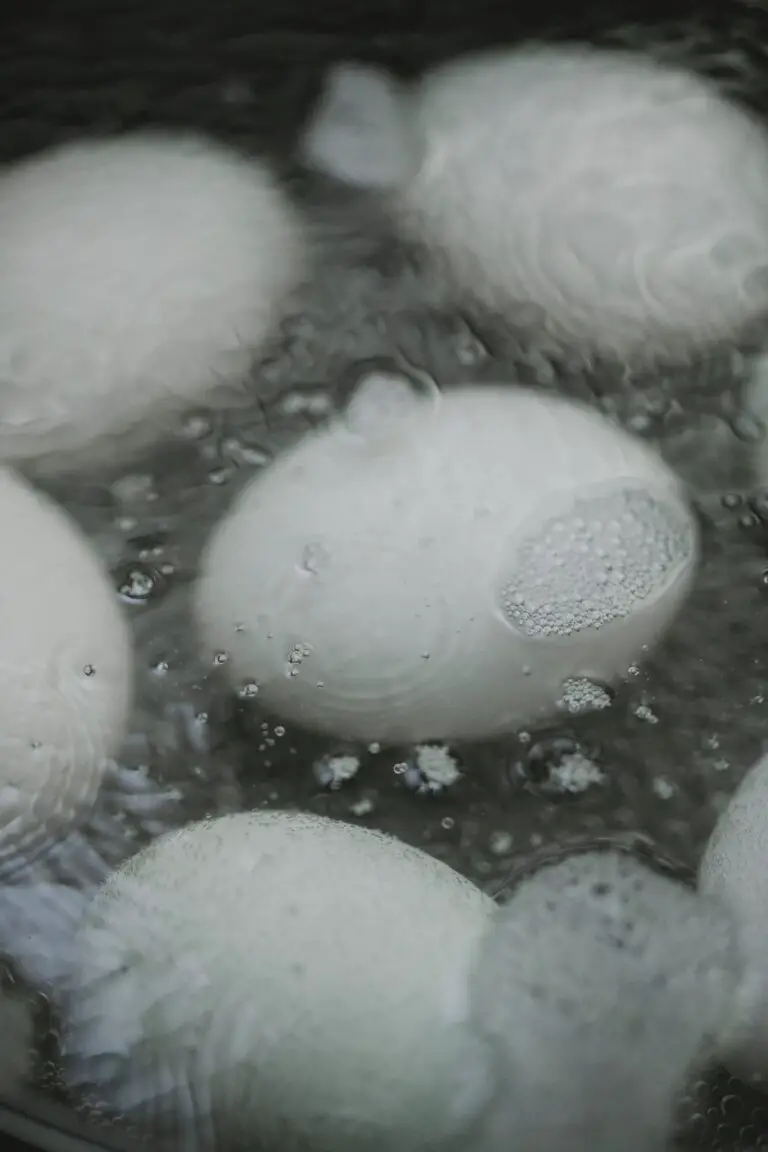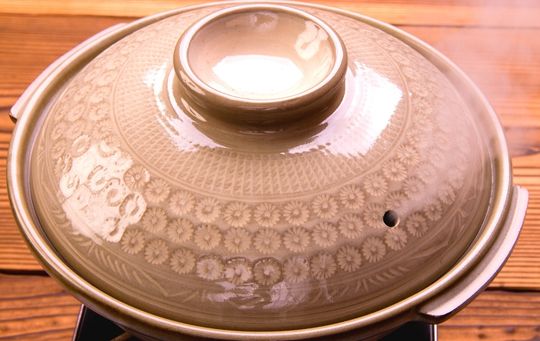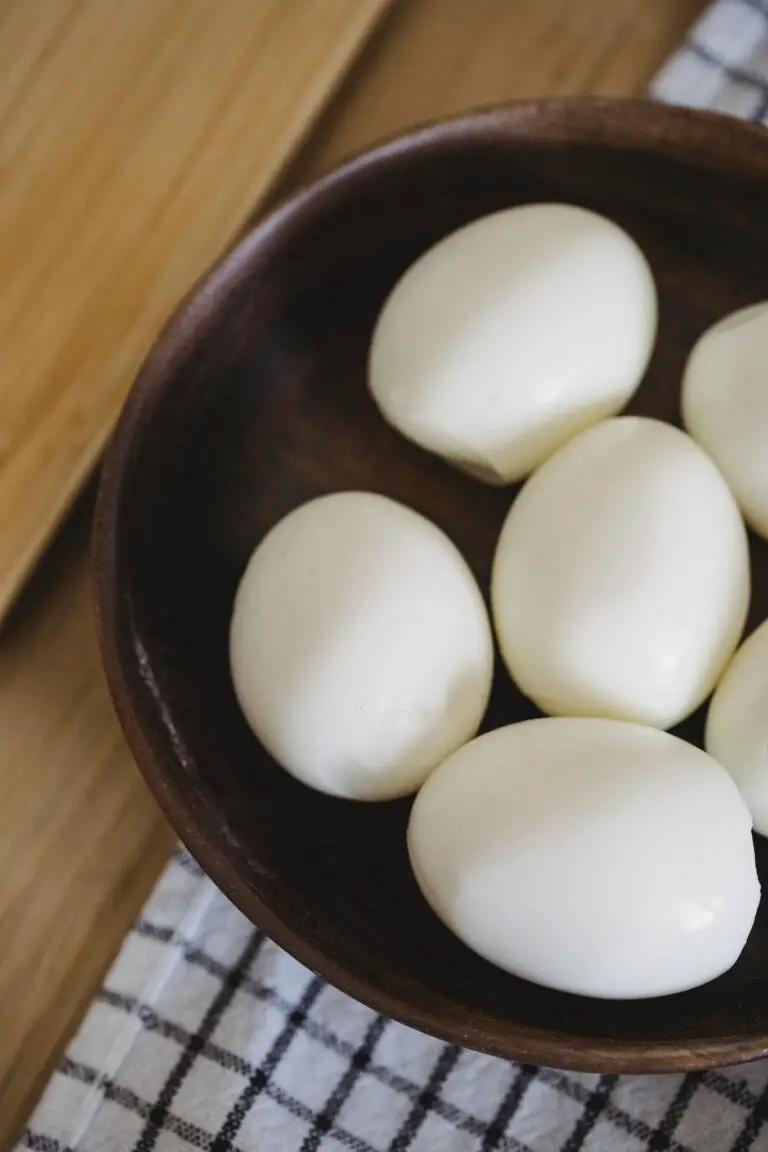What Happens When You Freeze Eggs in the Shell (Nov 2023)
What Happens When You Freeze Eggs in the Shell? When you freeze eggs in the shell, the water content inside them turns into ice crystals, which can cause the egg to expand and potentially crack the shell. Thawing frozen eggs should be done gradually in the refrigerator to maintain their texture and flavor. Using a microwave or hot water can lead to uneven cooking and safety concerns.
What Happens When You Freeze Eggs in the Shell
| Aspect | What Happens When You Freeze Eggs in the Shell? |
|---|---|
| Egg Contents | Freezing eggs in the shell can cause the liquid inside to expand, potentially leading to the shell cracking. |
| Shell Integrity | The expanding liquid can create pressure, causing the shell to crack and the egg white to seep out when freezing. |
| Quality and Texture | Frozen eggs in the shell may experience changes in quality and texture, resulting in a less desirable taste and texture when thawed. |
| Limited Use Cases | Freezing eggs in the shell is not a recommended method for long-term storage and is generally reserved for temporary preservation when no other options are available. |
| Alternative Methods | It’s often better to freeze eggs after cracking them and mixing the yolks and whites, or to consider alternative methods like freezing egg whites or yolks separately. |
Key Takeaways
What Happens When You Freeze Eggs in the Shell
Freezing eggs in the shell involves a unique set of challenges. When eggs are exposed to freezing temperatures, the water inside them forms ice crystals that can expand and potentially crack the eggshell.
While the yolk and white are preserved, the texture can be altered. When thawed, the egg white and yolk may become somewhat thicker or more viscous than fresh eggs. Additionally, some individuals have reported a subtle change in flavor.
To mitigate these effects, it’s crucial to follow proper freezing and thawing procedures, such as using the refrigerator for gradual thawing, to maintain the best possible quality when freezing eggs in their shells.
Understanding the Science of Freezing Eggs
To comprehend what happens when you freeze eggs in their shells, it’s essential to understand the science behind it. Eggs are remarkably complex structures, consisting of a protective shell, egg white (albumen), and yolk.
When you freeze an egg, the water content within it turns into ice crystals. These ice crystals can expand and cause structural damage to the egg’s delicate components, potentially altering its texture and cooking properties.
The eggshell, though durable, is not impervious to the effects of freezing. If not handled correctly, it can crack or weaken, exposing the contents to contamination.
Benefits of Freezing Eggs in the Shell
Freezing eggs in the shell offers several advantages, making it a valuable practice for home cooks and egg enthusiasts.
- Extended Shelf Life: Freezing eggs allows you to extend their shelf life from a few weeks to several months, reducing food waste and ensuring a constant egg supply, even during seasonal fluctuations.
- Convenience: Frozen eggs are convenient for various culinary applications. You can use them for baking, making scrambled eggs, or cooking omelets without the need to defrost them first.
- Economical: Buying eggs in bulk when they are on sale and freezing them is a cost-effective way to save on groceries. It’s especially useful if you own chickens and experience egg surpluses.
Potential Drawbacks and Considerations
While freezing eggs in their shells offers benefits, it’s essential to be aware of potential drawbacks and considerations.
How to Freeze Eggs in the Shell
Freezing eggs in the shell requires careful preparation to ensure they maintain their quality. Here’s a step-by-step guide:
How to Thaw Frozen Eggs in the Shell
Thawing frozen eggs in the shell should be done safely to preserve their quality. Here are the recommended methods:
Practical Uses for Frozen Eggs
Frozen eggs can be used in various culinary applications, making them a versatile ingredient in your kitchen:
Conclusion
Freezing eggs in the shell can be a valuable technique for home cooks looking to extend the shelf life of their eggs and reduce food waste.
While there are some potential drawbacks, such as minor texture and flavor changes, these can often be overlooked in exchange for the convenience and economic benefits.
Remember to follow proper freezing and thawing procedures to ensure both safety and quality.
Whether you have an abundance of backyard eggs or want to take advantage of sales at the store, freezing eggs in the shell can be a practical and budget-friendly solution for maintaining a steady supply of eggs in your kitchen.





